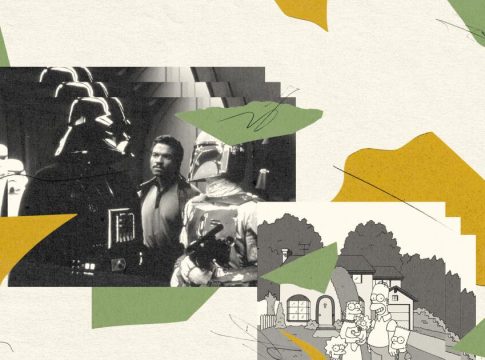Hollywood vs. AI: The Legal Battle Over Copyright Infringement
As artificial intelligence continues to transform creative industries, tension is rising between major Hollywood studios and AI firms. The recent legal actions taken by Walt Disney Co. and Universal Pictures against AI image generator Midjourney signify a pivotal moment in the ongoing discourse about intellectual property rights in the digital age.
The Lawsuit Unfolds
Last week, Disney and Universal filed a lawsuit in U.S. District Court in Los Angeles, accusing Midjourney of directly infringing on copyrighted characters from beloved franchises like Star Wars, Minions, and Marvel. The studios claim that Midjourney’s technology produces strikingly similar images of iconic characters, sometimes replicating scenes directly from films.
In their 110-page complaint, the studios illustrate numerous examples where Midjourney’s output resembles characters like Iron Man and Woody, claiming that these images were used to promote its image generation service. The lawsuit aims not only for monetary compensation but also seeks an injunction against Midjourney from further copyright infringement, especially regarding the training of its upcoming video tools.
A Fight for Creative Integrity
Disney and Universal’s legal team described Midjourney as "the quintessential copyright free-rider," emphasizing that piracy remains piracy, regardless of whether the infringing content is produced by a human or an AI. The stakes are high for the studios, as they argue that unauthorized use of their intellectual property could undermine the foundations of U.S. copyright law, which spurs investment and innovation in creative fields.
The Broader Context
This legal action follows a growing trend where various creative industries begin to challenge AI firms in courts. Publishers, including The New York Times, have already raised concerns about copyright violations and sought legal remedies against tech giants like OpenAI. Music labels, too, have pursued similar lawsuits over the unauthorized use of copyrighted music.
However, creators and industry insiders have voiced concern that while the lawsuit is a necessary step, it may not be the final answer. AI technologies often operate under the “fair use” doctrine, which allows limited reproduction of materials without permission. Midjourney has previously stated that it does not seek permissions from copyright holders, creating a contentious environment for artists and content creators.
The Human Cost
Many within the creative community, particularly artists, animators, and writers, express anxiety about how AI could disrupt job markets. Reid Southen, a film concept artist, noted that since the rise of generative AI technologies, his income had plummeted by half. Additionally, studios are also weighing the potential of AI as a tool that could streamline tasks, potentially leading to significant job losses even as they explore responsible usage.
Southen’s insights resonate amidst a backdrop of mounting pressure on Disney and Universal to take a stand. By pursuing legal action against Midjourney, these studios send a clear message that the creative economy must safeguard itself against digital encroachments that threaten the livelihoods of individuals behind beloved content.
Conclusion: A Turning Point
As this legal battle unfolds, it clearly highlights the need for a more defined framework around AI-generated content and copyright laws. The Hollywood studios’ lawsuit against Midjourney is not just a reaction; it represents a broader discussion about the future of creativity in the age of AI. While enhanced tools promise convenience and innovation, the quest to balance technological advancement with creative rights remains an ongoing struggle, one that will shape the future of the entertainment industry for years to come.
As this legal precedent sets, attention will undoubtedly shift toward how other studios and creators respond in defense of their intellectual property. The tension between creativity and technology is just beginning.

Writes about personal finance, side hustles, gadgets, and tech innovation.
Bio: Priya specializes in making complex financial and tech topics easy to digest, with experience in fintech and consumer reviews.

